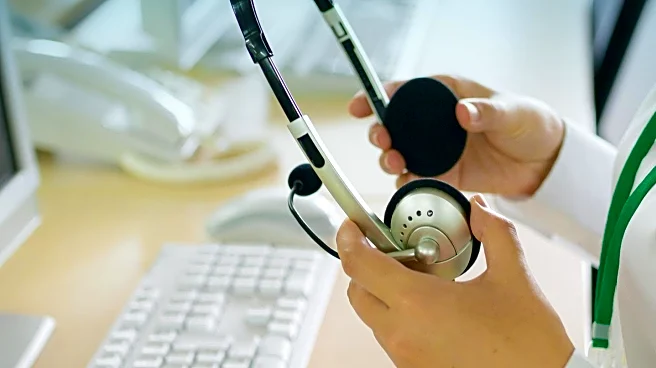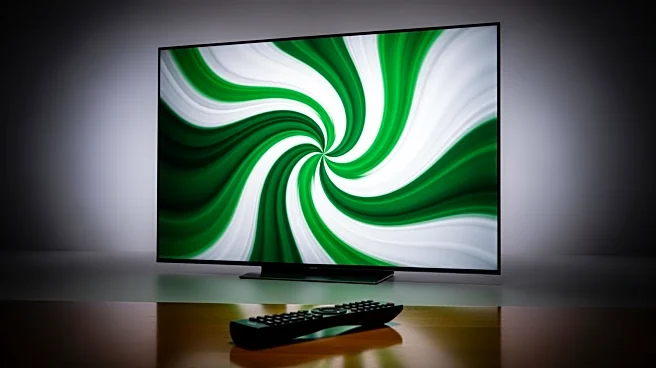What's Happening?
Healthcare employers are facing significant challenges in engaging their deskless workforce, which comprises a large portion of the global workforce, particularly in healthcare. These workers often lack
access to digital communication channels that are typically used in office environments, leading to a disconnect in organizational communication. This gap is particularly problematic as it can result in frontline healthcare workers missing out on important updates, benefits, and recognition, which are crucial for their engagement and well-being. The issue is exacerbated by the high turnover and burnout rates in the healthcare sector, with 56% of nurses and clinical staff experiencing burnout, according to the 2024 National Forum on Healthcare Workforce Wellbeing.
Why It's Important?
The communication gap in healthcare settings has significant implications for both employees and the organizations they work for. When healthcare workers feel disconnected from their organization, it can lead to disengagement, increased burnout, and higher attrition rates. This not only affects the well-being of the workers but also impacts patient care and the overall efficiency of healthcare services. Addressing these communication challenges is crucial for retaining skilled healthcare professionals and ensuring they feel valued and supported. Effective communication and recognition strategies can improve morale, reduce turnover, and enhance the quality of care provided to patients.
What's Next?
Healthcare organizations are encouraged to adopt more inclusive and effective communication strategies tailored to the realities of frontline work. This includes using trusted channels such as digital screens in break rooms, mobile alerts, and pre-shift huddles to deliver short, relevant messages. Additionally, organizations should focus on integrating recognition into daily workflows and making benefits easily accessible. By doing so, they can create a more connected and supportive work environment that acknowledges the contributions of all employees, regardless of their role or location.
Beyond the Headlines
The shift towards more inclusive communication and recognition strategies in healthcare could lead to broader cultural changes within the industry. By prioritizing the needs of deskless workers, healthcare organizations can foster a more inclusive and equitable workplace culture. This approach not only benefits employees but also enhances patient care and organizational performance. As the healthcare industry continues to evolve, embracing these changes could set a precedent for other sectors facing similar challenges with their deskless workforce.










